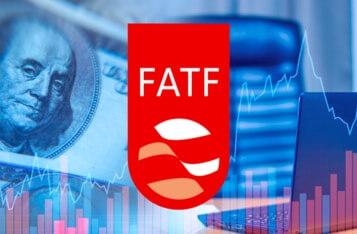Search Results for "travel rule"
Crypto & the FATF Travel Rule: FinCEN Suggests Challenges in Governance, Not Technology
The Financial Action Task Force (FATF) Travel Rule has been in the center of attention lately, which concerns crypto transactions above a certain amount must be accompanied by identifying information.The rule is an update to the existing FATF Recommendation 16, regarding cross-border and domestic wire transfers, and is intended to address the anti-money laundering (AML) and counter-terrorist financing (CFT) challenges as crypto adoption increases. The FATF Travel Rule could mean implications for virtual asset service providers (VASPs), including cryptocurrency exchanges, wallet providers, and custodians.
Crypto & the FATF: ING Develops Travel Rule Protocol for Tracking Crypto Transfers Ahead of FATF Plenary Meeting
The FATF has a wide range of recommendations, a total of 40 to ensure regulatory alignment between the compliance imposed on financial institutions and the regulations in its member states. The FATF Travel Rule is Recommendation 16, which has received a lot of attention from the crypto industry, especially virtual asset service providers (VASPs).
iComply on FATF Travel Rule: Cryptocurrency is Meant to be Trustless, Not Anonymous
iComply Investor Services (iComply) is a regulatory technology (Regtech) company focused on making financial markets more robust, secure, and efficient. We asked their CEO, Matthew Unger for his take on 2019 FATF Travel Rule Guidelines and find out what these recommendations really mean and how should exchanges or VASPs observe them?
Exclusive: Blockpass COO, on the Significance of the FATF Travel Rule to VASPs
Personal identity is a fundamental human right according to Article 8 of the United Nation’s Convention on the Rights of the Child. Identity is crucial to a functioning society and economy, however, there are 1.1 billion people in the world that do not have proof of identity and 45% of them are among the poorest 20% around the world. For enterprises, customer data protection can be proven costly as 2.8 billion consumer data records were exposed at an estimated cost of more than $654 million in 2018.
New Travel Rule Regulations Impacting Crypto Transactions
In a recent podcast, Alice Nawfal discusses how new Travel Rule regulations are shaping the crypto industry and the compliance challenges faced by VASPs.
Crypto Service Providers Willing to Embrace FATF Travel Rule, Study Shows
The Travel Rule, which now governs service providers in the digital currency ecosystem, is arguably not a source of concern as a new report from Notabene shows many firms in the space are in compliance already.
Crypto Exchange bitFlyer Implements Travel Rule for Crypto Asset Transfers
BitFlyer, a leading Japanese crypto asset exchange operator, announced the implementation of new regulations known as the travel rule, aimed at preventing criminal activities and enhancing security in the crypto industry.
FCA Unveils Guidance on Cryptoasset Promotions Compliance
The UK's Financial Conduct Authority has issued a finalised non-handbook guidance on Cryptoasset Financial Promotions, aiming to clarify compliance with new laws and balance consumer protection with innovation for long-term economic growth.
Online Travel Agencies Booking.com and Travala.com Enters Into Strategic Partnership for Mass Adoption of Crypto
Travala.com, a crypto-friendly travel platform founded in 2017 and Booking.com, an online travel agency established in 1996 have signed a strategic partnership deal that is aimed at encouraging the mass adoption of cryptocurrency.
Circle CEO: Treasury’s Crypto Wallet Rule is a Potential Next Level of Financial Surveillance Never Seen Before
Circle's CEO said that the proposed rule introduces a “potential for a level of financial surveillance that goes beyond anything...
Blockchain Allowed 17 Million People to Travel Between Macau and China During Coronavirus
A blockchain-powered QR health code system has been instrumental in enabling at least 17 million people to travel between the Chinese mainland and Macau since May.
US Travel Firm CWT Paid $4.5 Million in Bitcoin to Get Computer System Back from Hackers
US travel management company CWT paid $4.5 million to hackers who stole sensitive corporate files. CWT has a global clientele and is the fifth-largest US travel company. The firm boasts an estimate of $1.5 billion in annual revenue and claims that it represents more than a third of companies on the S&P 500 U.S stock index.











